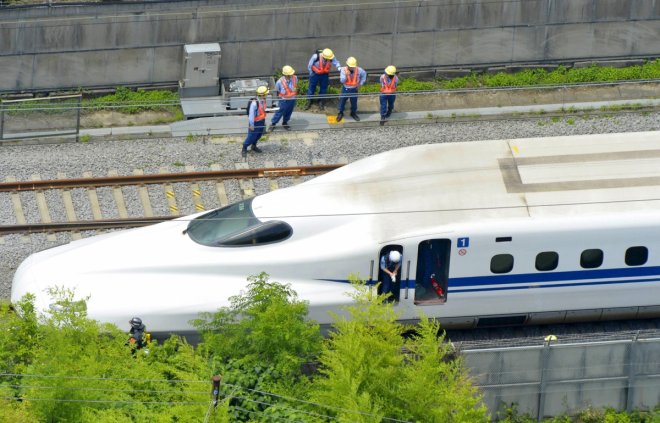
With China and Japan competing closely for winning the contract for the proposed Kuala Lumpur-Singapore high-speed rail (HSR) project, the Malaysian government has said the complicated and extensive project will be executed under a 'robust governance structure'.
Malaysian minister Abdul Rahman Dahlan was responding to demands by the opposition coalition that the government should be open about the income from the project and the cost sharing with Singapore.
"I want to emphasise that, the Government has spent a long time researching and analysing the project, to understand the impacts, benefits and risks of the Kuala Lumpur-Singapore HSR project to the country," said Abdul Rahman, the Minister in the Prime Minister's Department.
"The background work on the project started in 2011 and only recently, after much work and deliberation, has the government proceeded to develop the HSR project with Singapore," he added.
Malaysia and Singapore are scheduled to ink the multi-billion dollar project on Tuesday. The minister said political parties should refrain from undue criticism of the project which will hamper the good relations with Singapore.
Malaysia and Singapore signed a Memorandum of Understanding (MoU) in July in the presence of Malaysian Prime Minister Najib Razak and Singapore Prime Minister Lee Hsien Loong. The 350-km high speed rail link will reduce the travel time between Singapore and Kuala Lumpur to around 90 minutes. The cost of the mega project, which will also connect six Malaysian cities with Singapore, is estimated to be US$16 billion.
Japan has openly expressed interest in winning the contract while companies from China and South Korea are also in the fray. "We hope the tendering process... will be based on international standards, transparent, and good for private companies' initiatives based on market mechanisms," a Japanese embassy official in Malaysia said, according to the South China Morning Post. The official said Japan has the most impressive credentials backing it up in its bid to win the contract. He cited the example of the Japanese high-speed rail, the Shinkansen, which hasn't seen an accident in 51 years.
However, observers say China has an edge over the others in the bid to win the project. China has already bagged high-profile infrastructure projects in Malaysia in recent times, including the East Coast Rail Link, a 620km line costing RM55 billion.
China's state-owned China Railway Engineering Corp also made significant investments in Bandar Malaysia when it bought a 60 percent stake from troubled investment fund 1MDB in partnership with Malaysian Iskandar Waterfront Holdings.
A Malaysian MP from the Democratic Action Party, Ong Kian Ming, said he believed suggested China could have an edge."The terms and conditions of the contract are still secret, as far as I know," he said, according to the SCMP.
However, others feel that the role of Singapore in the project will also weigh in when the bidders are assessed. It's thought that Singapore would give higher weight age on safety and the highest possible construction standards, factors that may give an edge to Japan.
The project will link 5 Malaysian cities to Singapore, following a coastal route and will herald closer economic integration between the countries. The economic integration between Singapore and Kuala Lumpur, which the HSR makes possible, will result in both the cities benefiting, MyHSR Corporation chief executive Mohd Nur Ismal Kamal told Business Times.








